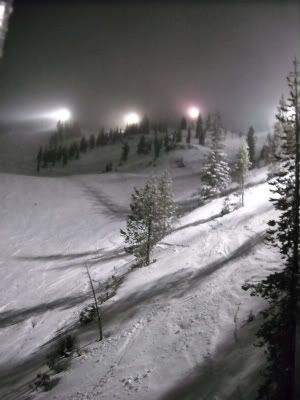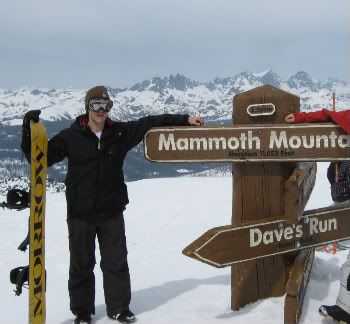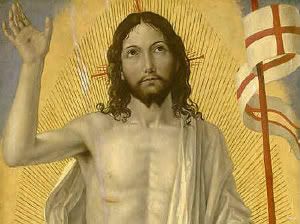The work of atonement derives from God's love; therefore it has not established the latter:
For this reason, Paul says that the love with which God embraced us "before the creation of the world" was established and grounded in Christ [Eph. 1:4-5]. These things are plain and in agreement with Scripture, and beautifully harmonize those passages in which it is said that God declared his love toward us in giving his only-begotten Son to die [John 3:16]; and, conversely, that God was our enemy before he was again made favourable to us by Christ's death [Rom. 5:10]. But to render these things more certain among those who require the testimony of the ancient church, I shall quote a passage of Augustine where the very thing is taught: "God's love," says he, "is incomprehensible and unchangeable. For it was not after we were reconciled to him through the blood of his Son that he began to love us. Rather, he has loved us before the world was created, that we also might be his sons along with his only-begotten Son - before we became anything at all. The fact that we were reconciled through Christ's death must not be understood as if his Son reconciled us to him that he might now begin to love those whom he hated. Rather, we have already been reconciled to him who loves us, with whom we were enemies on account of sin. The apostle will testify whether I am speaking the truth: 'God shows his love for us in that while we were yet sinners Christ died for us' [Rom. 5:8]. Therefore, he loved us even when we practiced enmity toward him and committed wickedness. Thus in a marvelous and divine way he loved us even when he hated us. For he hated us for what we were that he had not made; yet because our wickedness had not entirely consumed his handiwork, he knew how, at the same time, to hate in each one of us what we had made, and to love what he had made."
- John Calvin, Institutes 2.16.4
Friday, April 30, 2010
He has loved us before the world was created
Saturday, April 24, 2010
He giveth snow like wool
This year’s snowboarding started with my Christmas break when I went home to Southwest Washington state. I snowboarded Mt. Hood at Ski Bowl and Mt. Hood Meadows with my younger brothers and various friends:



Sunset from Mt. Hood Meadows
Unfortunately I have no pictures but I also spent a rainy New Year’s Eve and early New Year’s Day on Mt. Hood with a brother and a friend. We snowboarded in the sometimes pouring rain which was a new experience for me. We made a fun time of it though trying to hone our jumping skills and enjoying the firework show at midnight on the mountain.
When I returned to California I made three trips up to Snow Valley near Big Bear in the mountains north of Loma Linda and the Inland Empire. The mountains in Southern California got more snow this year than in a long time so the snowboarding has been better than usual down here this year.

Mountains of fresh snow in a gas station parking lot as we made our way to Snow Valley.
To cap off the year’s snowboarding I made a trip up to Mammoth Mountain a couple of weeks ago. We left Loma Linda at 3AM, made it to Mammoth in time for the lifts to open, left at 4PM when the lifts closed and were back home in Loma Linda around 9:30.

Monday, April 19, 2010
O Sweetest Exchange!
And when the cup of our iniquities was filled, and it had become perfectly clear that their wages - the punishment of death - had to be expected, then the season arrived during which God had determined to reveal henceforth His goodness and power. O the surpassing kindness and love of God for man! No, He did not hate us, or discard us, or remember our wrongs; He exercised forbearance and long-suffering! In mercy, of His own accord, He lifted the burden of our sins! Of His own accord He gave up His own Son as a ransom for us - the Saint for sinners, the Guiltless for the guilty, the Innocent for the wicked, the Incorruptible for the corruptible, the Immortal for the mortal! Indeed, what else could have covered our sins but His holiness? In whom could we, the lawless and impious, be sanctified but in the Son of God alone? O sweetest exchange! O unfathomable accomplishment! O unexpected blessings - the sinfulness of many is buried in One who is holy, the holiness of One sanctifies the many who are sinners!- The Epistle to Diognetus 9:2-5
Thursday, April 15, 2010
"Divine Appointment"
Monday, April 12, 2010
New Books! #2
 I finally put the gift card I got from my parents for Christmas to work and bought a few books. Unfortunately the next four months will probably be too busy to make much of a dent in either. The two I bought are very different from one another. Lilith by George MacDonald has been on my list of books to read for five or six years now since reading Phantastes by the same author. It was of Phantastes which C.S. Lewis wrote, "that the whole book had about it a sort of cool, morning innocence, and also, quite unmistakably, a certain quality of Death, good Death. What it actually did to me was to convert, even to baptise (that was where the Death came in) my imagination." I also found Phantastes to be captivating and was told that if I liked that book I would probably also like Lilith.
I finally put the gift card I got from my parents for Christmas to work and bought a few books. Unfortunately the next four months will probably be too busy to make much of a dent in either. The two I bought are very different from one another. Lilith by George MacDonald has been on my list of books to read for five or six years now since reading Phantastes by the same author. It was of Phantastes which C.S. Lewis wrote, "that the whole book had about it a sort of cool, morning innocence, and also, quite unmistakably, a certain quality of Death, good Death. What it actually did to me was to convert, even to baptise (that was where the Death came in) my imagination." I also found Phantastes to be captivating and was told that if I liked that book I would probably also like Lilith.Thursday, April 8, 2010
In my place condemned He stood
Sunday, April 4, 2010
Hallelujah!

Friday, April 2, 2010
The true Victim

Christ himself is the true Victim, who takes away all the sins of the world. He is the immaculate Lamb of God, sacrificed on the cross during the Paschal season. He is the true Priest consecrated by God, and as such has offered himself up as Victim to the Father in an odor of sweetness. He is the High Priest who once a year enters alone in the Holy of Holies to plead not only for his own people, but for the salvation of all peoples who believe in him. And this Christ truly did, dying once for the entire human race until the end of time.-Thomas à Kempis


